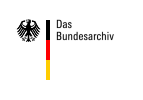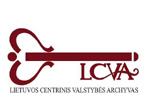![]() >> www.cnc-aff.fr The CNC French Film Archives were created in 1969 on the initiative of André Malraux, Minister of Culture, so that the state could take over the inventory and conservation of old films, including those on nitrate supports. Subsequently, the collections of old films steadily grew. In addition to voluntary deposits, donations, and acquisitions, legal deposits for films were implemented in 1977 and became the CNC’s responsibility in 1992.
>> www.cnc-aff.fr The CNC French Film Archives were created in 1969 on the initiative of André Malraux, Minister of Culture, so that the state could take over the inventory and conservation of old films, including those on nitrate supports. Subsequently, the collections of old films steadily grew. In addition to voluntary deposits, donations, and acquisitions, legal deposits for films were implemented in 1977 and became the CNC’s responsibility in 1992.
Arquivos Parceiros
>> www.cncinema.abt.ro Arhiva Nationala de Filme (ANF) was established in 1957 as sole institution in Romania that collects, preserves and uses films for non-commercial purposes. Over the years it has been active in finding and identifying films, cataloguing as well as carrying out a series of studies on the history of Romanian cinema. It is a member of FIAF since 1960 and member of ACE since 1996.
 >>www.bundesarchiv.de It is the concern of every cultured nation to maintain, care for, make accessible to the public and continually supplement its stock of moving pictures. The Federal Republic of Germany primarily fulfils this responsibility through the Federal Archives. The Federal Film Archive in Berlin is one of the largest archives of its kind in the world.
>>www.bundesarchiv.de It is the concern of every cultured nation to maintain, care for, make accessible to the public and continually supplement its stock of moving pictures. The Federal Republic of Germany primarily fulfils this responsibility through the Federal Archives. The Federal Film Archive in Berlin is one of the largest archives of its kind in the world.
 >> www.cinecitta.com Cinectittà Luce é uma empresa pública que funciona como o braço operacional do Ministério da Cultura para a indústria cinematográfica italiana. È o resultado da fusão entre a Cinecittà Holding e o Istituto Luce, este último a primeira empresa estatal de cinema da Europa, fundada em 1924.
>> www.cinecitta.com Cinectittà Luce é uma empresa pública que funciona como o braço operacional do Ministério da Cultura para a indústria cinematográfica italiana. È o resultado da fusão entre a Cinecittà Holding e o Istituto Luce, este último a primeira empresa estatal de cinema da Europa, fundada em 1924.
![]() >>www.cinemateca.pt A Cinemateca Portuguesa-Museu do Cinema é uma instituição pública que tem como missão a salvaguarda e exibição do património cinematográfico português e mundial. Foi fundada no início dos anos 50 por Manuel Félix Ribeiro, pioneiro das Cinematecas, e tornou-se uma instituição autónoma em 1980.
>>www.cinemateca.pt A Cinemateca Portuguesa-Museu do Cinema é uma instituição pública que tem como missão a salvaguarda e exibição do património cinematográfico português e mundial. Foi fundada no início dos anos 50 por Manuel Félix Ribeiro, pioneiro das Cinematecas, e tornou-se uma instituição autónoma em 1980.
 >> www.cinematheque.fr A Cinémathèque Française foi fundada em 1936 por Henri Langlois, Georges Franju, Jean Mitry e Paul Auguste Harlé. Ao longo dos anos transformou-se num centro de cultura cinematográfica e a sua vasta colecção faz com que seja um dos mais famosos arquivos de filmes do mundo. É também um lugar onde muitas gerações descobriram o cinema.
>> www.cinematheque.fr A Cinémathèque Française foi fundada em 1936 por Henri Langlois, Georges Franju, Jean Mitry e Paul Auguste Harlé. Ao longo dos anos transformou-se num centro de cultura cinematográfica e a sua vasta colecção faz com que seja um dos mais famosos arquivos de filmes do mundo. É também um lugar onde muitas gerações descobriram o cinema.
>>www.cinematek.be The Cinémathèque Royale is one of the most important archives in Europe and in the world, due to its collections, its activities in exhibiting and distributing archival films across Europe, its role in the International associations of Archives (FIAF, ACE), its technical staff who has a history o
![]() >> www.cinetecadibologna.it A Cineteca di Bologna é uma instituição municipal que tem por missão principal a preservação e disseminação do património cinematográfico em tantas formas e expressões quanto possível. Na sua origem esteve a Comissão de Cinema criada em Bolonha nos anos 60, fundada na ideia de que o nosso passado cultural, se considerado como uma coisa viva, também tem um futuro.
>> www.cinetecadibologna.it A Cineteca di Bologna é uma instituição municipal que tem por missão principal a preservação e disseminação do património cinematográfico em tantas formas e expressões quanto possível. Na sua origem esteve a Comissão de Cinema criada em Bolonha nos anos 60, fundada na ideia de que o nosso passado cultural, se considerado como uma coisa viva, também tem um futuro.
 >>www.fondazionecsc.it The Cineteca Nazionale (National Film Archive), part of Centro Sperimentale di Cinematografia, one of the most important film archives in Europe, was instituted by State law in 1949 in order to preserve and propagate Italy's cinematographic heritage. The original nucleus of the collection was put together with the establishment of the Centro Sperimentale di Cinematografia in the 1930s, and it was used as a teaching aid.
>>www.fondazionecsc.it The Cineteca Nazionale (National Film Archive), part of Centro Sperimentale di Cinematografia, one of the most important film archives in Europe, was instituted by State law in 1949 in order to preserve and propagate Italy's cinematographic heritage. The original nucleus of the collection was put together with the establishment of the Centro Sperimentale di Cinematografia in the 1930s, and it was used as a teaching aid.
 >> www.dfi.dk O Det Danske Filminstitut (Instituto de Cinema da Dinamarca) é a instituição nacional responsável pelo apoio e incentivo ao filme e à cultura cinematográfica, bem como pela sua conservação. As actividades do DFI abrangem a participação no desenvolvimento e produção de longas e curtas-metragens de ficção e documentários, a distribuição e marketing e a gestão do arquivo fílmico nacional e da cinemateca.
>> www.dfi.dk O Det Danske Filminstitut (Instituto de Cinema da Dinamarca) é a instituição nacional responsável pelo apoio e incentivo ao filme e à cultura cinematográfica, bem como pela sua conservação. As actividades do DFI abrangem a participação no desenvolvimento e produção de longas e curtas-metragens de ficção e documentários, a distribuição e marketing e a gestão do arquivo fílmico nacional e da cinemateca.
![]() >> www.deutsche-kinemathek.de The task of the Deutsche Kinemathek – Museum für Film und Fernsehen is to collect, preserve, develop, present and mediate our audiovisual heritage. Since 2006, it remains the sole institution in Europe presenting both media together through its permanent exhibitions on film and television.
>> www.deutsche-kinemathek.de The task of the Deutsche Kinemathek – Museum für Film und Fernsehen is to collect, preserve, develop, present and mediate our audiovisual heritage. Since 2006, it remains the sole institution in Europe presenting both media together through its permanent exhibitions on film and television.
![]() >> www.deutsches-filminstitut.de Fundado em 1949, o Deutsches Filminstitut – DIF não só é a mais antiga instituição alemã dedicada ao cinema mas também a maior do país. Desde a integração do Deutsches Filmmuseum, Frankfurt/Main em 2006, DIF tem disponibilizado uma variedade excepcional de serviços e conhecimentos sobre cinema:
>> www.deutsches-filminstitut.de Fundado em 1949, o Deutsches Filminstitut – DIF não só é a mais antiga instituição alemã dedicada ao cinema mas também a maior do país. Desde a integração do Deutsches Filmmuseum, Frankfurt/Main em 2006, DIF tem disponibilizado uma variedade excepcional de serviços e conhecimentos sobre cinema:
 >> www.filmi.arhiiv.ee The main task of the Estonian Film Archives, according to the Act of Archives, is to collect, preserve and provide access to the national film, photo and audio heritage. Collecting and preserving film heritage started in 1935. After the II WW governing the archival matters was directed to Moscow. Access to most of the pre-war films was restricted (the first film of Estonian origin was released in 1912).
>> www.filmi.arhiiv.ee The main task of the Estonian Film Archives, according to the Act of Archives, is to collect, preserve and provide access to the national film, photo and audio heritage. Collecting and preserving film heritage started in 1935. After the II WW governing the archival matters was directed to Moscow. Access to most of the pre-war films was restricted (the first film of Estonian origin was released in 1912).
 >> www.eyefilm.nl EYE Film Instituut Nederland (EYE Instituto de Cinema dos Países Baixos) é o instituto sectorial holandês para o apoio à cultura cinematográfica do país. Gere uma colecção de relevo internacional de filmes, fotografias e cartazes, que reflectem os mais importantes aspectos da história do cinema. Grande parte desta colecção é única no mundo.
>> www.eyefilm.nl EYE Film Instituut Nederland (EYE Instituto de Cinema dos Países Baixos) é o instituto sectorial holandês para o apoio à cultura cinematográfica do país. Gere uma colecção de relevo internacional de filmes, fotografias e cartazes, que reflectem os mais importantes aspectos da história do cinema. Grande parte desta colecção é única no mundo.
 >> http://filmarchiv.at O Filmarchiv Austria é a localização central das colecções fílmicas e de documentação sobre filmes da Áustria e acolhe o património cultural audiovisual do país. As diversas colecções em acervo abrangem um período de mais de cem anos, desde o século XIX até ao presente. O Filmarchiv Austria acolhe mais de 100.000 materiais fílmicos, 2,000.000 de fotografias, cerca de 25.000 programas e inúmeros outros itens, tais como cartazes, livros e documentação.
>> http://filmarchiv.at O Filmarchiv Austria é a localização central das colecções fílmicas e de documentação sobre filmes da Áustria e acolhe o património cultural audiovisual do país. As diversas colecções em acervo abrangem um período de mais de cem anos, desde o século XIX até ao presente. O Filmarchiv Austria acolhe mais de 100.000 materiais fílmicos, 2,000.000 de fotografias, cerca de 25.000 programas e inúmeros outros itens, tais como cartazes, livros e documentação.
![]() >> www.mcu.es Filmoteca Española is the Spanish national film archive under the direction of the Instituto de la Cinematografía y de las Artes Visuales (ICAA) of the Ministry of Education, Culture and Sports. The aims and activities of the Filmoteca Española are:
>> www.mcu.es Filmoteca Española is the Spanish national film archive under the direction of the Instituto de la Cinematografía y de las Artes Visuales (ICAA) of the Ministry of Education, Culture and Sports. The aims and activities of the Filmoteca Española are:

 >> www.fn.org.pl The National Film Archive in Poland was created in 1955. From the beginning it belonged to The International Federation of Film Archives (FIAF), an association of the majority of film archives in the World. The collection of film reels and archival materials such as posters, photos, scripts assembled in Filmoteka Narodowa is one of the largest in Europe. With the help of few generation of archivists Filmoteka Narodowa retrieve 75% of Polish feature films from 1914 to 1939 rescued after the II World War.
>> www.fn.org.pl The National Film Archive in Poland was created in 1955. From the beginning it belonged to The International Federation of Film Archives (FIAF), an association of the majority of film archives in the World. The collection of film reels and archival materials such as posters, photos, scripts assembled in Filmoteka Narodowa is one of the largest in Europe. With the help of few generation of archivists Filmoteka Narodowa retrieve 75% of Polish feature films from 1914 to 1939 rescued after the II World War.
![]() >> www.cinetecamilano.it The Cineteca Italiana was officially founded in Milan in 1947. Its first nucleus was a small stock of cinema masterpieces rescued from destruction in the Thirties and adventurously preserved until after World War II by a group of young cinéphiles and intellectuals among whom there were the future directors Luigi Comencini and Alberto Lattuada.
>> www.cinetecamilano.it The Cineteca Italiana was officially founded in Milan in 1947. Its first nucleus was a small stock of cinema masterpieces rescued from destruction in the Thirties and adventurously preserved until after World War II by a group of young cinéphiles and intellectuals among whom there were the future directors Luigi Comencini and Alberto Lattuada.
 The Imperial War Museum was founded in 1917 to record the story of the Great War and the contributions made to it by the peoples of the Empire. An Act of Parliament formally established the Museum and its governing body, the Board of Trustees, in 1920, when the Museum opened in the Crystal Palace. From 1924 to 1935 the Museum was housed in two small galleries adjoining the Imperial Institute. In 1936 it was reopened in the central portion of the former Bethlem Royal Hospital in Lambeth Road, Southwark where it remains to this day.
The Imperial War Museum was founded in 1917 to record the story of the Great War and the contributions made to it by the peoples of the Empire. An Act of Parliament formally established the Museum and its governing body, the Board of Trustees, in 1920, when the Museum opened in the Crystal Palace. From 1924 to 1935 the Museum was housed in two small galleries adjoining the Imperial Institute. In 1936 it was reopened in the central portion of the former Bethlem Royal Hospital in Lambeth Road, Southwark where it remains to this day.
 >> www.kinoteka.org.rs Jugoslovenska Kinoteka (official title since 1952) or National Film Archive of Republic Serbia is the national film library of the Republic Serbia, founded in 1949. It consists of four organizational units: Film archive, Film museum – the cinema, The Library and General Services. Jugoslovenska Kinoteka is one of the founders and a permanent member of FIAF (International Federation of Film Archives). It takes part in the activities of FIAF since 1951. The heart of the institution is the Film Archive.
>> www.kinoteka.org.rs Jugoslovenska Kinoteka (official title since 1952) or National Film Archive of Republic Serbia is the national film library of the Republic Serbia, founded in 1949. It consists of four organizational units: Film archive, Film museum – the cinema, The Library and General Services. Jugoslovenska Kinoteka is one of the founders and a permanent member of FIAF (International Federation of Film Archives). It takes part in the activities of FIAF since 1951. The heart of the institution is the Film Archive.
![]() >> www.kava.fi A Cinemateca Finlandesa foi fundada em 1957 como associação particular. No ano seguinte aderiu à Federação Internacional dos Arquivos de Filmes (FIAF). Em 1979, a cinemateca tornou-se um organismo público sob a tutela do Ministério da Educação. A 1 de Janeiro de 2008, as funções da cinemateca foram alargadas, abarcando também os arquivos radiofónicos e televisivos. Um novo nome foi então adoptado – Arquivo Audiovisual Nacional.
>> www.kava.fi A Cinemateca Finlandesa foi fundada em 1957 como associação particular. No ano seguinte aderiu à Federação Internacional dos Arquivos de Filmes (FIAF). Em 1979, a cinemateca tornou-se um organismo público sob a tutela do Ministério da Educação. A 1 de Janeiro de 2008, as funções da cinemateca foram alargadas, abarcando também os arquivos radiofónicos e televisivos. Um novo nome foi então adoptado – Arquivo Audiovisual Nacional.
 >> www.cinetecadelfriuli.org The Cineteca del Friuli was founded in Gemona in 1977, soon after the city was destroyed by the earthquake of May 1976, and is now one of the five major Italian film libraries. It joined the International Federation of Film Archives (FIAF) in 1989. The film archive began with a collection of films of historical interest and it has grown considerably over the years: it currently includes some 10,000 films in 35mm and 16mm, 50% fiction and 50% newsreels and documentaries. Small formats such as 17.5 mm, 9.5 mm, the 8mm and Super8 are also represented in about 500 copies.
>> www.cinetecadelfriuli.org The Cineteca del Friuli was founded in Gemona in 1977, soon after the city was destroyed by the earthquake of May 1976, and is now one of the five major Italian film libraries. It joined the International Federation of Film Archives (FIAF) in 1989. The film archive began with a collection of films of historical interest and it has grown considerably over the years: it currently includes some 10,000 films in 35mm and 16mm, 50% fiction and 50% newsreels and documentaries. Small formats such as 17.5 mm, 9.5 mm, the 8mm and Super8 are also represented in about 500 copies.
>> www.landesfilmsammlung-bw.de The Landesfilmsammlung Baden-Wuerttemberg (LFS) is the central film archive of the federal state of Baden-Wuerttemberg in Germany. It was established in 1998. The LFS collects films from and about Baden-Wuerttemberg. In addition it archives copies of films funded by the MFG Film Funding Organization. More than 8.500 films have been collected so far from communal, church, state and company archives as well as private collections, the major sources of the constantly growing collection. The oldest film reel dates back to 1904, the latest video file was recorded only last year.
 >> www.lichtspiel.ch No ano 2000, a associação Lichtspiel assumiu a responsabilidade pela ameaçada colecção cinematográfica do técnico de cinema Walter A. Ritschard, natural de Berna. Desde então, os membros do Comité não só restauraram essa extraordinária colecção e a tornaram acessível ao público, como também desenvolveram uma cinemateca regional, que se tornou uma interface para todos os assuntos relacionados com o cinema.
>> www.lichtspiel.ch No ano 2000, a associação Lichtspiel assumiu a responsabilidade pela ameaçada colecção cinematográfica do técnico de cinema Walter A. Ritschard, natural de Berna. Desde então, os membros do Comité não só restauraram essa extraordinária colecção e a tornaram acessível ao público, como também desenvolveram uma cinemateca regional, que se tornou uma interface para todos os assuntos relacionados com o cinema.
 >> www.archyvai.lt O Arquivo Estatal Central da Lituânia é o maior arquivo de entre o sistema de arquivos estatal. Tem como missão principal da sua actividade a recolha e salvaguarda dos documentos em suporte papel e audiovisuais para as gerações futuras, bem como o acesso público permanente às suas colecções.
>> www.archyvai.lt O Arquivo Estatal Central da Lituânia é o maior arquivo de entre o sistema de arquivos estatal. Tem como missão principal da sua actividade a recolha e salvaguarda dos documentos em suporte papel e audiovisuais para as gerações futuras, bem como o acesso público permanente às suas colecções.
 >> http://mandarchiv.hu/ O Instituto Húngaro da Ciência Cinematográfica foi fundado em 1957. A partir de 2000, passou a chamar-se Arquivo de Filmes Húngaro, com o estatuto de ‘colecção pública nacional’. As atribuições do Arquivo são as de recolha, aquisição, preservação, restauro, exibição e arquivo profissional dos filmes húngaros, documentários, jornais de actualidades, filmes de animação, filmes de ficção científica e clássicos do cinema mundial.
>> http://mandarchiv.hu/ O Instituto Húngaro da Ciência Cinematográfica foi fundado em 1957. A partir de 2000, passou a chamar-se Arquivo de Filmes Húngaro, com o estatuto de ‘colecção pública nacional’. As atribuições do Arquivo são as de recolha, aquisição, preservação, restauro, exibição e arquivo profissional dos filmes húngaros, documentários, jornais de actualidades, filmes de animação, filmes de ficção científica e clássicos do cinema mundial.
 >>www.museocinema.it Unique in Italy and among the most important worldwide, the Museo Nazionale del Cinema (or National Cinema Museum) is hosted within the Mole Antonelliana in Turin, the symbol of the city. Inaugurated in July 2000, it has seen over 6,500,000 visitors (568,000 only in 2012) in 13 years, becoming one of the most visited museums in Turin and in Piedmont and garnering much acclaim at an international level; a remarkable goal for a very particular museum, which proposes to charm its visitors by drawing them into the enchanting world of the Seventh Art.
>>www.museocinema.it Unique in Italy and among the most important worldwide, the Museo Nazionale del Cinema (or National Cinema Museum) is hosted within the Mole Antonelliana in Turin, the symbol of the city. Inaugurated in July 2000, it has seen over 6,500,000 visitors (568,000 only in 2012) in 13 years, becoming one of the most visited museums in Turin and in Piedmont and garnering much acclaim at an international level; a remarkable goal for a very particular museum, which proposes to charm its visitors by drawing them into the enchanting world of the Seventh Art.
 >> www.nfa.cz A Cinemateca de Praga foi fundada em 1943 pelo Centro de Cinema Checo-Morávio, para proteger os materiais fílmicos das operações de guerra. Em 1946, tornou-se membro da Federação Internacional dos Arquivos de Filmes (FIAF). Tendo integrado o Instituto de Cinema Checoslovaco, o arquivo tornou-se autónomo em 1992, sob a designação de Arquivo Fílmico Nacional (NFA), por decisão do Ministro da Cultura.
>> www.nfa.cz A Cinemateca de Praga foi fundada em 1943 pelo Centro de Cinema Checo-Morávio, para proteger os materiais fílmicos das operações de guerra. Em 1946, tornou-se membro da Federação Internacional dos Arquivos de Filmes (FIAF). Tendo integrado o Instituto de Cinema Checoslovaco, o arquivo tornou-se autónomo em 1992, sob a designação de Arquivo Fílmico Nacional (NFA), por decisão do Ministro da Cultura.
![]() >> www.nb.no A Biblioteca Nacional da Noruega é responsável por coleccionar, preservar e restaurar o património fílmico norueguês de modo a torná-lo acessível à pesquisa e documentação. As suas colecções incluem mais de 21.000 títulos de diferentes formatos, géneros e origens.
>> www.nb.no A Biblioteca Nacional da Noruega é responsável por coleccionar, preservar e restaurar o património fílmico norueguês de modo a torná-lo acessível à pesquisa e documentação. As suas colecções incluem mais de 21.000 títulos de diferentes formatos, géneros e origens.
 >> www.filmmuseum.at Österreichisches Filmmuseum (Austrian Film Museum / OeFM) is a specific exhibition space (film as a time-based event, the experience of a performative act), a collection site and archive (film as an artefact, as local and global memory), a research and study centre, as well as a place for public debate and reflection (film as a nodal point of discourse on culture and society).
>> www.filmmuseum.at Österreichisches Filmmuseum (Austrian Film Museum / OeFM) is a specific exhibition space (film as a time-based event, the experience of a performative act), a collection site and archive (film as an artefact, as local and global memory), a research and study centre, as well as a place for public debate and reflection (film as a nodal point of discourse on culture and society).
![]() >> ssa.nls.uk
>> ssa.nls.uk
The Scottish Screen Archive is a film and video collection of over 100 years of Scotland's history. The archive reflects 20th-century Scottish social, cultural and industrial history, the lives of ordinary Scots across the generations and the achievements of Scottish film-makers in the craft of film production. It joined the National Library of Scotland in 2007.
 >> www.sfi.se The Swedish Film Institute works to promote film across the board – from idea to finished product, during launch in Sweden and around the world, and by preserving films for posterity in our archives. It was founded in 1963 by the Swedish state and the various professional bodies of the film industry.
>> www.sfi.se The Swedish Film Institute works to promote film across the board – from idea to finished product, during launch in Sweden and around the world, and by preserving films for posterity in our archives. It was founded in 1963 by the Swedish state and the various professional bodies of the film industry.
.jpg) >> www.tainiothiki.gr O Arquivo Fílmico Grego foi criado em 1950 pela Associação de Críticos de Cinema em Atenas. Em 1963, uma fundação intitulada “Arquivos Fílmicos da Grécia – Arquivo Fílmico Grego” foi oficialmente instituída por Decreto Real (105/1963). Desde 1983 que o Arquivo Fílmico Grego é membro efectivo da Federação Internacional dos Arquivos de Filmes (FIAF). O Arquivo Fílmico Grego é uma fundação cultural sem fins lucrativos e recebe uma subvenção anual do Ministério da Cultura Grego.
>> www.tainiothiki.gr O Arquivo Fílmico Grego foi criado em 1950 pela Associação de Críticos de Cinema em Atenas. Em 1963, uma fundação intitulada “Arquivos Fílmicos da Grécia – Arquivo Fílmico Grego” foi oficialmente instituída por Decreto Real (105/1963). Desde 1983 que o Arquivo Fílmico Grego é membro efectivo da Federação Internacional dos Arquivos de Filmes (FIAF). O Arquivo Fílmico Grego é uma fundação cultural sem fins lucrativos e recebe uma subvenção anual do Ministério da Cultura Grego.
O Arquivo é detentor da maior e mais importante colecção de filmes da Grécia, constituída por 10.000 títulos estrangeiros e mais de 2.500 títulos gregos, a par de uma colecção de aparelhos de pré-cinema, lanternas mágicas, e também diversos tipos de câmaras e equipamento relacionado com cinema. Tem também cerca de 7.000 fotografias de filmes gregos e 10.000 fotografias de filmes estrangeiros, cerca de 5.000 fotogramas e programas, e cerca de 800 cartazes gregos e 1.500 cartazes estrangeiros. A Biblioteca do Arquivo tem uma vasta colecção de livros esgotados, catálogos de cinema e revistas, directamente acessíveis ao público.
 Deutsch
Deutsch English
English Čeština
Čeština Dansk
Dansk Français
Français Italiano
Italiano Lietuvių
Lietuvių Magyar
Magyar Nederlands
Nederlands Norsk
Norsk Português
Português Suomi
Suomi